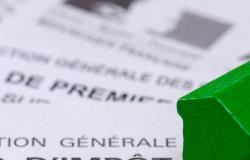“My daughter is starting kindergarten and I’m the first to be worried! I hope she doesn’t have three or four teachers in the first few weeks…”
Published at 00:40
Updated at 5:00 a.m.
What you need to know
- The end of the holidays has come: hundreds of thousands of students are heading back to school this Tuesday and Wednesday in Quebec.
- In these times of shortage, many parents wonder if their children will have a good teacher, and the same one, throughout the school year.
- There are concerns for this generation already affected by lockdowns, then by strikes.
Like so many other parents this back-to-school season, Geneviève Sirois, who is a professor of school management at TELUQ, wonders to what extent the teacher shortage will affect her daughter or if she will find a gem like there are thousands in Quebec.
In these years of shortage, the big question is not just whether a teacher is in place, but whether he or she will stay all year and whether he or she has the skills to be in front of a class, whether or not he or she is legally qualified.
What many fear is what happened last year in a school in the Ville-Émard district: a ballet of around fifteen teachers in one year for first-year students, as reported by The Press.
Read “A Ballet of Teachers in 1re year ”
If this case is extreme, year in year out, in many classes in Quebec, primary or secondary school students (by subject) see three, four or five teachers come and go each year.
This is the case of Alexandre’s daughter (who asked us to remain anonymous so as not to upset the headmistress at the beginning of the year). Last year, her 10-year-old daughter had three teachers.
At that age, children become attached to their teachers. For my daughter, it was hard both academically and psychologically. Fortunately, my wife studied hard to prevent our daughter from falling behind. And it’s certain that the little nags in the class took advantage of the instability.
Alexandre, father of a 10-year-old daughter
Frequent changes of teachers in the same year are far from all being publicized or reaching the ears of the Minister of Education. A teacher from a very multi-ethnic background who wrote to us asking for anonymity for fear of reprisals emphasizes that to her knowledge, in a particularly vulnerable group where there has been a lot of instability, “no parent has expressed concern.”
“Many children speak three or four languages other than French at home and their parents work several jobs to put bread on the table.”
For students, “getting used to a new teacher again clearly has an impact on learning, on the feeling of belonging to the school,” says Nicolas Prévost, president of the Fédération québécoise des directions d’établissement d’enseignement (FQDE).
An impact on the quality of teaching
Last year, the Auditor General of Quebec sounded the alarm in his report.
“The decline in the quality of education is one of the main consequences of the shortage that has been identified by the many education stakeholders we met.”
The repeated replacement of teachers has serious consequences “on the consistency of teaching methods, on the consistency of assessment and on the social and emotional bond between the child and the teacher,” notes Geneviève Sirois of TELUQ.
It also has repercussions on learning. As Mr.me Sirois, the generation that is currently in school is already the one for which the Ministry has eased its requirements “first because of the pandemic, then because of the strike last year.”
Égide Royer, professor at the Faculty of Education at Laval University, notes how a good, stable teacher is particularly important during major transitions, in 6e year (before the big jump to secondary school) and especially in 1re year. Because “to teach a child to read and write, you can’t have just anyone.”
The question of skills
The number of teachers who come to schools to help out without having a teaching certificate is increasing.
There have always been such teachers who are not legally qualified, says Sylvain Martel, spokesperson for the Regroupement des comités de parents autonomes du Québec (RCPAQ).
“People who decide to go into teaching do so with full knowledge of the facts and in good faith. It is possible that there are some who are less well equipped to do so,” says Mr. Martel. But regarding their teaching skills, “we must not generalize excessively, as we have been doing for the past two or three years,” he adds.
Teacher in 6e year in Montreal, Michèle Henrichon deplores that we put all these teachers “in the same bath” and recalls that they have varied profiles. But in the “long and medium term”, she believes that the growing presence of these teachers in schools will be felt.
“It doesn’t make sense that I have to train a new teacher,” she says. She points out, like the FQDE, that some, for example, don’t know how to evaluate students, an essential aspect of the profession to say the least.
Private schools are not immune to shortages. But as David Bowles, president of the Federation of Private Education Institutions (FEEP), points out, in his sector, the problem arises mainly during the year. (Unlike public schools, position assignments are settled in the spring in private schools.)
“It’s harder than before to find good, qualified teachers.”
Mr. Bowles explains that private schools must sometimes also rely on unqualified teachers or teachers “who arrive from a foreign country and are integrating into Quebec,” situations which require special support.







